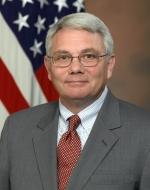Why Did I Find Requisite Organization So Compelling
- Time span can be useful in the way to look at some people, some organizations. But it may not have the universality that Elliot may have subscribed to. I think the curves are useful, but I think you apply them as you need to apply them.
- The curves come into mind in terms of what I call producing leadership. And we have leaned, as a lot of public institutions do, hard on the side of objectivity. Enterprise leadership isn't always the result of an objective linear program. It is much more nonlinear.
Speaker A I guess the most compelling aspect of the book to me are the notion that you can put work into levels, and each level has a unique, productive feature to the enterprise and that it's not pej...
Transcript of the presentation video
NOTE: This transcript of the video was created by AI to enable Google's crawlers to search the video content. It may be expected to be only 96% accurate.
Speaker A I guess the most compelling aspect of the book to me are the notion that you can put work into levels, and each level has a unique, productive feature to the enterprise and that it's not pejorative in terms of where you live at the levels. It's not a matter of your ultimate contribution that everybody in an enterprise has a productive role and that you can, through looking at an organization really free people up to live out that productivity in terms of the good. Of the overall organization and indeed, in terms their own satisfaction that they feel that they're aligned with the objectives of the organization and that they can contribute and participate in the success of that organization. I've seen that work in combat. I went to the first Gulf War and sort of saw a military mission come to fruition, if you will. From years of training and practice and theory and doctrine and study, you can really see how a great seven level organization can accomplish the mission, and everybody can be enfranchised to do their part and feel a great amount of satisfaction when the mission is accomplished. And I think doing that in a business setting is equally rewarding. And the theory just struck me as the right way to do this, both for the organization and the people involved.
Speaker B What do you think of the curves? What do you think of time horizon or time span?
Speaker A I must admit, I sort of, I think, share Sir Roderick's view of time span. I don't want to put any words in his mouth, but I think there are different ways. I mean, there are spans, and I'm not sure whether time is one parameter, but I think capability, I think productivity, I think some things just have a life. I mean, some things just have a certain time span that I've been in companies where the mission of the company was to be sold and the time span isn't necessarily a value. I'm familiar with these statistics that I think of the Fortune 100. If you look at Fortune 100 companies that were founded 100 years ago, I think General Electric is the only one to beat the average. So if you invested in General Electric, you would have done better than investing in a stock market index. Well, a lot of those companies aren't around anymore. That doesn't mean they were unsuccessful. I mean, their mission was to return value to the shareholders, and maybe they had a 40 year life, and maybe that was okay. So I guess I'm just sort of constantly pushing back. I think time span can be useful in the way to look at some people, some organizations, but it may not have the universality that Elliot may have subscribed to it. I think the curves, again, are useful, but I think you apply them as you need to apply them. And I may have applied them less than I was, quote, supposed to. Again, I'm sort of still on this practical journey with Ro of applying it to organizations. So maybe I need to read the book a third time after I get through with a few engagements.
Speaker B One of the things we talked about is those are almost countercultural to institutional compell because it's almost as if it suggests equity and people aren't equal. And that's a cultural issue in America.
Speaker A Yeah, okay. And I guess I come at the curves a little differently in that I think if you get the right organization, if you get the organization right, it allows people to rise to their levels of contributions and the curves become less important in selecting people that the organization really selects its own. And that's sort of the perfect world to me, where everybody knows their place and they rise to the highest place they can be. And they're both productive and happy at that place. The curves come into mind in terms of what I call producing leadership. And that's one of the challenges we have now in terms of preparing the right people to do the right jobs. And we have leaned, as a lot of public institutions do, hard on the side of objectivity. And as we all know, enterprise leadership isn't always the result of an objective linear program that you can't put the CEO as the objective function in equation and have him spit out at the other end 20 years from now. It is much more nonlinear. And I guess that's what Elliot's whole point was, that it is occur or progression that you get to that point.
Major organizations and consulting firms that provide Requisite Organization-based services





